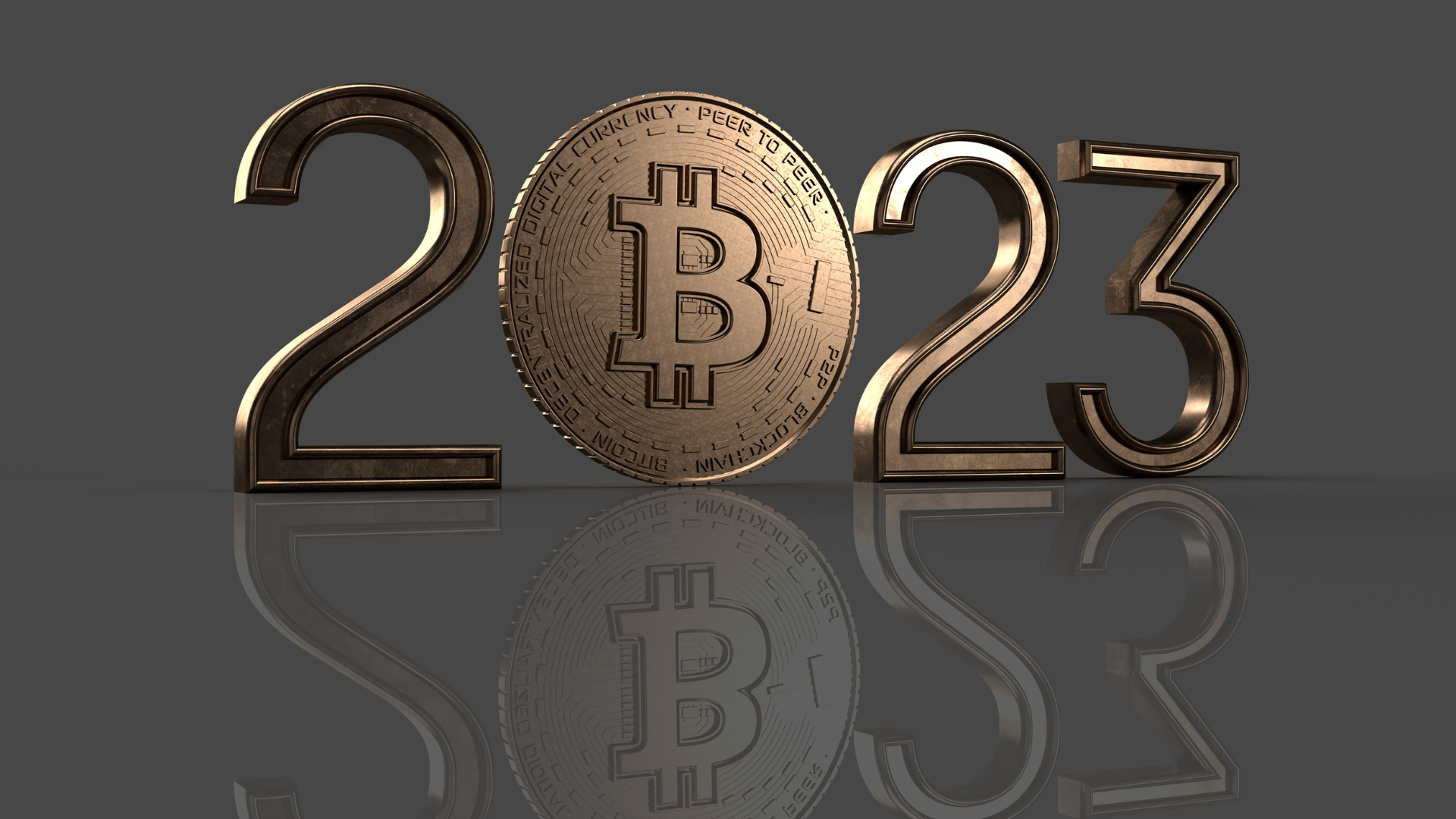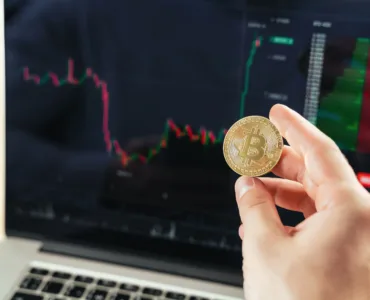2022 was a tumultuous year for the crypto industry. Crypto markets have fallen over 50% since their peak in 2021, while stock markets and bond markets globally have fallen in double digits.
Terra (LUNA)
The Terra ($LUNA) crypto token crashed from $120 to $0.002, a 99.9% correction between May 11 to May 12. Along with LUNA, the TerraUSD ($UST) stablecoin endured a significant crash from $1 to $0.30. The Terra blockchain was a platform created to peg stablecoins to fiat money, initially founded by 31-year-old South Korean Do Kwon.
Combined, $LUNA and $UST had a market capitalization of roughly $50 billion, and the reasoning behind the crash is still unconfirmed. Interpol issued an arrest warrant for Kwan but was recently thrown out by a South Korean judge.
That awkward moment from @UpOnlyTV when Martin lets @stablekwon know that “prison isn’t that bad.” 😂😂😂
Martin: “So don’t fret.”
Do Kwon: “Good to know.”@cobie #LUNA #terra #ust @ledgerstatus pic.twitter.com/oCNxFv3xFg
— Colin Talks Crypto (@ColinTCrypto) November 8, 2022
Three Arrows Capital
In June, Three Arrows Capital, a Singapore-based cryptocurrency hedge fund failed to meet its margin calls and repay the money lent from cryptocurrency broker Voyager Digital. The hedge fund subsequently filed for Chapter 15 bankruptcy in the United States. Not surprisingly, Voyager Digital declared bankruptcy the following month.
FTX
Arguably the biggest crypto story of the year was the fallout of FTX, one of the world’s largest crypto exchanges and custodians led by founder Sam Bankman-Fried, also known as ‘SBF.’
At the moment, SBF has pleaded not guilty in New York federal court to eight charges related to the collapse of FTX and hedge fund Alameda Research. He is facing charges of conspiracy to commit wire fraud and securities fraud, individual charges of securities and wire fraud, money laundering and conspiracy to avoid campaign finance regulations. In total, SBF is facing 115 years in prison.
In sum, FTX was once valued as a $32 billion company that used QuickBooks for its accounting methods, freely transferred client funds back and forth between FTX subsidiaries and Alameda Research and spent millions of dollars donating to U.S. Democratic politicians and even shadow donations to Republican politicians. FTX filed for Chapter 11 bankruptcy in the U.S. in November.
“They use QuickBooks… A multimillion dollar company using QuickBooks,” FTX CEO John Ray said when explaining why FTX is worse than Enron https://t.co/WJWMxhZ7Oa pic.twitter.com/PHm5QXlaZW
— Bloomberg (@business) December 13, 2022
At this time, it appears FTX will be remembered as one of the biggest financial frauds in history. Depending on the total amount of money and crypto that bankruptcy auditors uncover, it will likely rank as the second largest financial fraud, right behind Enron.
Scams in 2023?
2023 has only just begun, and we are already hearing rumblings about further scams and potential defaults.
Logan Paul and CryptoZoo
Uncovered by a leading investigative journalist in the financial industry, Coffeezilla has put forward information that could incriminate famous YouTuber Logan Paul on his crypto game titled CryptoZoo.
It was only AFTER not getting a response from him, that I began calling his manager Jeff for answers about the CryptoZoo developers, and got comically stupid responses. pic.twitter.com/IjtHC0egGu
— Coffeezilla (@coffeebreak_YT) January 3, 2023
Binance
This may shock most of our readers, but those in the industry wonder if Binance is financially stable after the FTX collapse. Largely, Binance has never revealed its liabilities and in fact, Binance CEO, Changpeng Zhao (also known as ‘CZ’) has indicated that the big four auditors have difficulties auditing crypto firms.
“Many of them don’t even know how to audit crypto exchanges” – CZ, December 2022
This @cz_binance clip is going viral but lacks context.
Question: Could Binance handle someone asking for $2.1billion back?
CZ avoids answering directly: “we are financially strong”
This wasn’t about customer deposits, it was about $2.1B FTX paid them.pic.twitter.com/fcpWX5BXvm
— Luke Martin (@VentureCoinist) December 15, 2022
Binance originally invested as a shareholder in FTX in 2019 and exited while receiving $2.1 billion in its own stablecoin ($BUSD) and in $FTT (FTX Tokens) as part of the deal. Now if Binance is forced to claw that back to FTX creditors, one wonders if Binance can remain afloat.
What Will Happen to Crypto in 2023?
With 2022 behind us, let’s throw out some of our predictions on what will happen to crypto and Bitcoin in 2023.
1) Bitcoin Sees Positive Returns
Often regarded as a hedge against inflation, we were able to put Bitcoin to the test with elevated inflation levels across the globe in 2022. As it turns out, Bitcoin’s return performed worse than U.S. stock markets. That said, Bitcoin’s network and decentralized nature have remained strong throughout a tough 2022. Crypto’s reputation was dented by the crises and scandals, but the salability and strength of its network have cemented itself as here to stay for the long run.
Even Cathie Wood, the CEO of ARK Invest who posted a 150% return on her ARK Innovation ETF in 2020, believes that Bitcoin’s price is still on pace for US$1,000,000 by 2030.

2) Global Bitcoin Adoption
Currently El Salvador and the Central African Republic (CAR) are the only nations in the world where Bitcoin acts as legal currency. That will change in 2023 with likely candidates Saint Kitts and Nevis, Venezuela and Paraguay. In November 2022, Terrance Drew, the Prime Minister of the Caribbean nation of Saint Kitts and Nevis indicated the country may adopt Bitcoin Cash (BCH) as legal tender.
Planting seeds in 44 countries.
3 days to go…#Bitcoin is good for the world 🌍 pic.twitter.com/eOwhJZQ4RX
— Nayib Bukele (@nayibbukele) May 16, 2022
Venezuela is a likely candidate as over 10% of its population owns cryptocurrency while its current year-over-year inflation rate stands roughly around 155%. Bitcoin would be regarded as a more stable currency for Venezuelans.
Paraguay is a possibility as Carlitos Rejala, a member of Paraguay’s Chamber of Deputies has proposed a bill to have Bitcoin as legal tender in the country. Whether the bill is passed is up for debate, but Rejala has indicated he is willing to run for President which would accelerate the possibility.
3) Regulatory Battles
With the fall of FTX, the Ontario Teacher’s Pension Plan wrote down its stake to zero, taking a US$95 million loss barely a year after initially investing in the company. The loss has a limited impact due to the size of the fund ($242.5 billion) but these losses catch the attention of regulators and politicians.
We saw a movement towards further oversight in December in Canada and we will likely see more. The Canadian Securities Administration announced that it will require all crypto exchanges seeking registration to sign undertakings before they are formally under regulatory watch.
This will take time as the wheels of government take a strong push to move, especially in an industry as complex and new as cryptocurrencies. Will 2023 be the year that regulators finally reach their limit?
4) Rebuilding Trust
Not only in crypto, but in many other industries like tech, rising interest rates, high inflation and a looming recession has forced many businesses to cut costs and cut them quickly. Years of zero interest rates will do that to an economy, where founders, venture capitalists and angel investors were flooded with cash and invested in any startup with a pulse.
The crypto industry in 2023 will have to rebuild and regroup. Over-leveraged firms and poor exposure to bad counterparties will not be tolerated in crypto anymore. New firms that come into the space will have to demonstrate integrity, trust and positive cash flows in order for the industry to rise again.
5) The Rise of Self-Custody
Trust is at an all-time low in exchanges, which inevitably will lead to a rise in users holding their crypto in self-custody wallets. When trust is low, incumbents will consolidate, pushing investors to obtain crypto from financially stable institutions and place them in self-custody, which ultimately lowers the risk of default for many retail investors.
If you do not own the keys, do you really own your Bitcoin?




